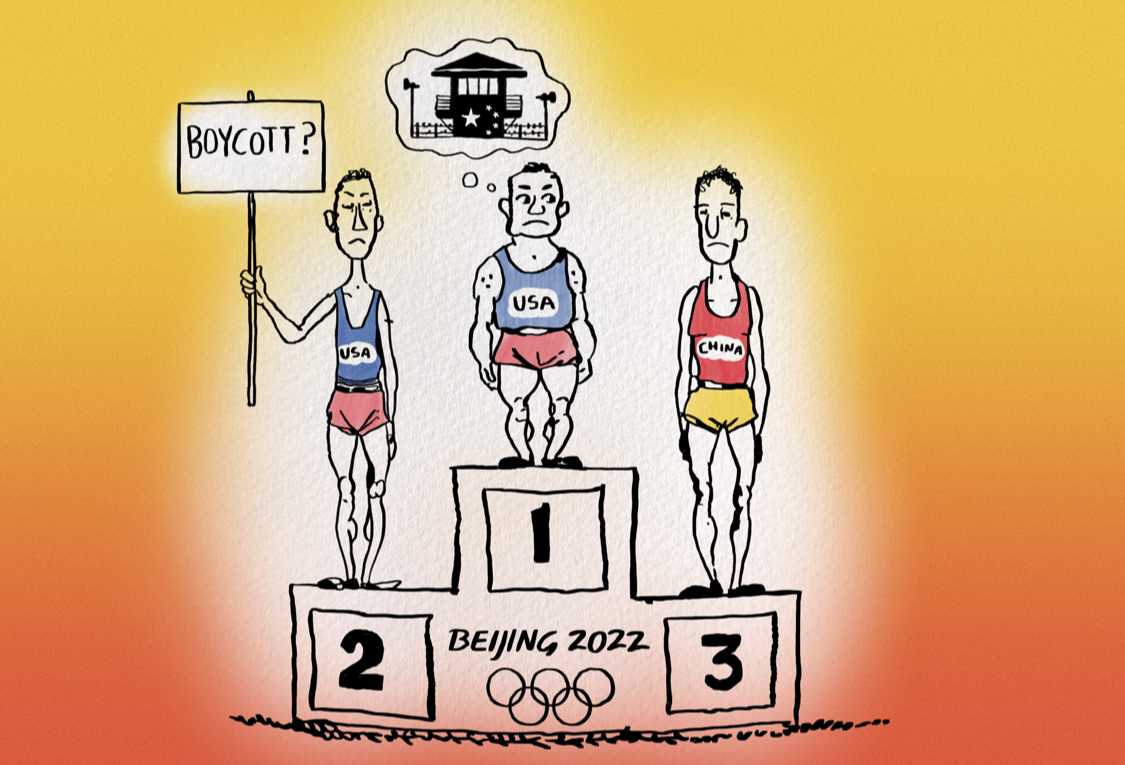The Chinese government is infamous for atrociously violating human rights and the upcoming 2022 Beijing Winter Olympics offers the perfect opportunity for the United States to stand against the continuous violations.
The United States’ competing in the 1936 Summer Olympics in Berlin was controversial because of the morality of attending an event hosted by the Nazi party, according to the United States Holocaust Memorial Museum Encyclopedia.
While the U.S. ultimately attended the 1936 Olympics, we can’t make the same mistake.
The U.S. shouldn’t compete in the 2022 Winter Olympics held in China to protest the country’s violations on the Uyghur people.
The U.S. estimates there are one to two million Uyghurs, a Muslim minority group from the autonomous Xinjiang province, and other Muslims currently held in Chinese internment camps, according to a December 2018 Senate testimony from Deputy Assistant Secretary Scott Busby.
Chinese officials claim they are detaining Uyghurs as a preventative measure from threats to China’s “integrity, government and population” because of radicalized religious ideas it says are held by some in the Xinjiang region, according to a Council on Foreign Relations article updated in March.
China has been accused of genocide by multiple countries, including the U.S., according to a March 2021 BBC article.
In addition to the arbitrary detention of Uyghurs, the children of those in internment camps are forced to stay in Chinese orphanages, according to the Council on Foreign Relations article.
While countries that host the Olympics usually spend more money than what is brought into the country, according to a January 2018 Council of Foreign Relations article, tourists still stimulate the Beijing economy through transportation, housing, eating and general spending. Local profits in the Beijing area could be used to further China’s human rights violations.
Genocide is disgustingly horrific and if the U.S. knows enough about human rights violations by China to come to the conclusion the country is actively partaking in a genocide, why should we send athletes to Beijing to compete in the Olympics?
This wouldn’t be some momentous step – the U.S. has boycotted the Olympics before, such as the 1980 Moscow Summer Olympics after the Soviet’s invasion of Afghanistan.
While boycotting the Olympics could be considered a slap in the face to athletes who’ve been training decades for their respective sports, the circumstances of the boycott would be understandable for athletes at the very least.
The U.S. government could also compensate the athletes, as former runner Herb Lindsay, who would’ve competed in the 1980 Summer Olympics, stated in an April 1980 Runner’s World article.
One could also argue sports should remain separate from international and government affairs, but human rights violations that could very well lead to a historical tragedy outweigh this idea.
It is not enough for the U.S. and other countries to speak out against the human rights violations being proliferated by the Chinese government.
Sports may be lighthearted, but sending our athletes to compete in a country that is violating basic human rights isn’t moral.
While millions of us watch from our couches as athletes compete in Beijing, about 2,860 miles away Uyghur people would continue to have their rights stripped away.









































